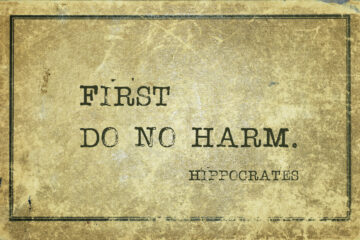These days, many Americans reject strong forms of religion. Christianity, in particular, is often embraced only in weak forms or as a mere tool for social and cultural transformation; the more muscular and biblical forms of Christianity are often ignored or rejected.
Additionally, individuals are more attentive to images than to words and are addicted to drugs, inane sexuality, and more. Communities are plagued by family disintegration, opioid addiction, political polarization, rampant crime, and other ills.
CAN AMERICAN CULTURE BE INVIGORATED?
Yes. History is not governed by fate. As Edmund Burke noted in response to the dark and bloody French Revolution, even when states are experiencing “…disgrace and disaster, they have suddenly emerged. They have begun a new course, and opened a new reckoning; and even in the depths of their calamity, and on the very ruins of their country, have laid the foundations of a towering and durable greatness.”
“What ails our society most is religious disbelief.”
From what soil did our culture arise? In large part, although not exclusively, it arose from the Christian religion, from the joining together of people in worshipping Jesus of Nazareth. In a significant way, the United States cohered through society’s common assent to Judeo-Christian morality, if not outright personal belief in the Christian gospel.
WHAT HAS HAPPENED TO CAUSE AMERICAN CULTURE’S ONGOING DISINTEGRATION?
As Jewish-American sociologist Philip Rieff argued in My Life Among the Deathworks, the West in general, and the United States in particular, is undergoing a historically-unprecedented experiment. Whereas historically, all civilizations have understood that sacred order (a religio-moral order) shapes cultural institutions and cultural products which, in turn, shape social order (individuals and communities), the contemporary West wishes to rip sacred order out from underneath social order, leaving social order to float on its own.
This experiment, Rieff argues, is being carried out by our cultural elite, whom Rieff designates as “the officer class.” This throwing out of the “cult” beneath our “culture” will not turn out well. In fact, unless or until this trend is reversed, things will continue to get worse.
Of course, our rotten cultural elite misunderstand or ignore one reality. All human beings are worshipers. Each of us is either a covenant-keeper or a covenant-breaker. So, our public square and its cultural institutions will always be formed and informed by some type of worship.
Italian philosopher Augusto del Noce was right to argue that the West has been captivated especially by two forms of false worship: scientism and eroticism. Together, these ideologies conceive of human beings as animals whose ends are production and consumption. They reduce happiness to the satisfaction of desires, especially sensual desires. And they view the moral law, the resurrection, and the promise of eternal life as superstitions.
WHAT CAN WE DO TO RENEW AMERICAN CULTURE?
Some well-meaning people place their hopes in civil religion, which Russell Kirk aptly describes as “a kind of cult of patriotism, founded upon a myth of national virtue and upon veneration of certain historical documents, together with utilitarian morality.” But such secular experiments never work. Worship of the state or of society is a diseased substitute for communion with God’s transcendent love and wisdom.
Other well-meaning people wish to employ religion in a merely instrumental manner, arguing that, while strong forms of religion may or may not be true, they are certainly useful. But this approach is flawed. People don’t get down on their knees because such a ritual is useful for society. They get on their knees because they are embracing transcendent Truth.
“Culture cannot be renewed if strong forms of Christianity are not renewed.”
Although Rieff was pessimistic about the West’s ability to renew itself based on strong forms of Judeo-Christian belief, he did offer hope. He wrote that the world awaits “a people” who can help recover society’s recognition of the frightening beauty of the “thou shalt” and “thou shalt not.”
Rieff was right, and as Christians, we should take it upon ourselves to be that “people.” Culture cannot be renewed if strong forms of Christianity are not renewed, and Christianity will not be renewed by arguing that it is expedient. Christian faith must be genuine.
WILL AMERICAN CULTURE ACTUALLY EXPERIENCE RENEWAL IN THE FUTURE?
Maybe. Only God knows.
A spiritual revival and subsequent cultural renewal could be triggered by the socio-political convulsions we are now experiencing. These upheavals could shake our society, causing it to recognize the counterfeit nature of any “salvation” offered by the idols and ideologies of this world.
Or, it could be triggered by a divinely-blessed movement of social and cultural renewal in which Christian communities strengthen themselves and give strong witness to the gospel; in which individuals come to genuine faith on the basis of the Christian community’s witness; and in which cultural institutions—familial, commercial, legal, political, and educational—are thereby renewed.
In short, what ails our society most is religious disbelief. If our nation will survive and flourish, we must sew back together that which as been severed: culture and the religious vision from which it arose. We must regain affection for the world’s true ruler—Jesus Christ—and renew our belief in historic and biblical Christian doctrine.
If we do this, we can confront the social, cultural, and political ills of our age. We can renew society’s awareness of and embrace the transcendent moral law. We can reform public policies and cultural institutions. We can restore true learning in our educational institutions. We can strive against the falsehoods and idiocies of our day. In a phrase, we can “brighten the corners” in which we find ourselves.
Out of love for God and neighbor, therefore, let us recover the frightening beauty of the “thou shalt” and “thou shalt not.”
Bruce Riley Ashford, Jr. is the Provost and Dean of Faculty at Southeastern Baptist Theological Seminary, where he also serves as Professor of Theology and Culture. Follow him on Twitter @BruceAshford, www.bruceashford.net
THIS ARTICLE WAS FIRST PUBLISHED BY LIFEWAY VOICES











